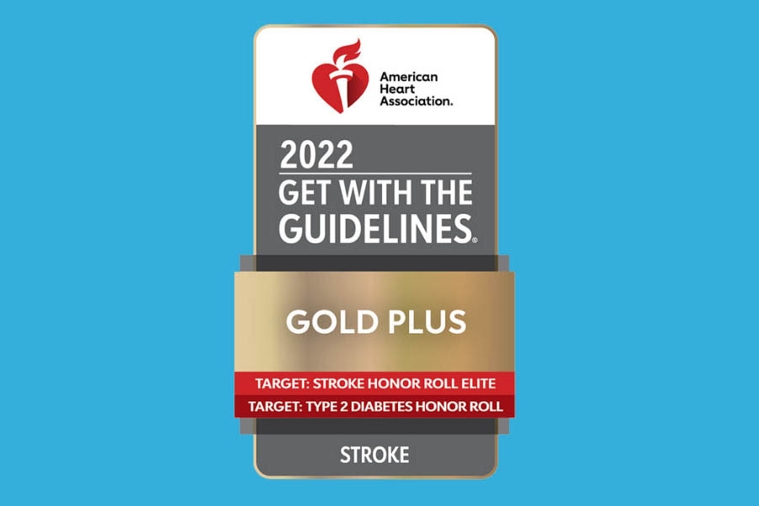
Adventist Health and Rideout nationally recognized for its commitment to providing high-quality cardiovascular care
Adventist Health and Rideout has received two American Heart Association Get With The Guidelines and Mission: Lifeline achievement awards for demonstrating a commitment to following up-to-date, research-based guidelines for the treatment of heart disease and stroke, ultimately leading to more lives saved, shorter recovery times and fewer readmissions to the hospital.
Every 40 seconds, someone in the U.S. has a stroke or heart attack. Heart disease and stroke are the No. 1 and No. 5 causes of death in the United States, respectively. Studies show patients can recover better when providers consistently follow treatment guidelines.
Get With The Guidelines and Mission: Lifeline programs put the expertise of the American Heart Association and American Stroke Association to work for hospitals nationwide, helping ensure patient care is aligned with the latest evidence- and research-based guidelines. As a participant in these programs, Adventist Health and Rideout qualified for the awards by demonstrating its commitment to improving quality care.
“Adventist Health and Rideout adheres to the latest treatment guidelines and streamlines processes to ensure timely and proper care for heart attacks and strokes,” said Adventist Health and Rideout President Chris Champlin. “Get With The Guidelines and The Mission: Lifeline programs make it easier for our teams to put proven knowledge and guidelines to work on a daily basis, which helps us ensure more people in our community experience longer, healthier lives.”
This year, Adventist Health and Rideout received these achievement awards:
- Get With The Guidelines Stroke Gold Plus, Target Stroke Elite, Target Type 2 Diabetes Honor Roll Awards
- Mission: Lifeline STEMI Receiving Bronze Award
“We are pleased to recognize Adventist Health and Rideout for its commitment to caring for those in their community who need cardiovascular care,” said John Warner, M.D., FAHA, past president of the American Heart Association and executive vice president for health system affairs at UT Southwestern Medical Center, in Dallas. “Hospitals that follow the American Heart Association’s quality improvement protocols often see improved patient outcomes, fewer readmissions and lower mortality rates – a win for health care systems, families and communities.”
###
About Adventist Health
Adventist Health is a faith-inspired, nonprofit integrated health system serving more than 80 eighty communities on the West Coast and Hawaii with over 400 sites of care. Founded on Adventist heritage and values, Adventist Health provides care in hospitals, clinics, home care agencies, hospice agencies, and joint-venture retirement centers in both rural and urban communities. Our compassionate and talented team of 34,000 includes employees, medical staff physicians, allied health professionals, and volunteers driven in pursuit of one mission; living God's love by inspiring health, wholeness, and hope. We are committed to staying true to our heritage by providing patient-centered, quality care. Together, We are transforming the healthcare experience with an innovative whole-person focus on physical, mental, spiritual, and social healing to support community well-being.
About Mission: Lifeline
The American Heart Association’s Mission: Lifeline program helps hospitals and emergency medical services develop systems of care that follow proven standards and procedures for STEMI patients. The program works by mobilizing teams across the continuum of care to implement American Heart Association/American College of Cardiology Foundation clinical treatment guidelines. For more information, visit heart.org.
About Get With The Guidelines
Get With The Guidelines® is the American Heart Association/American Stroke Association’s hospital-based quality improvement program that provides hospitals with the latest research-based guidelines. Developed with the goal of saving lives and hastening recovery, Get With The Guidelines has touched the lives of more than 12 million patients since 2001. For more information, visit heart.org.


